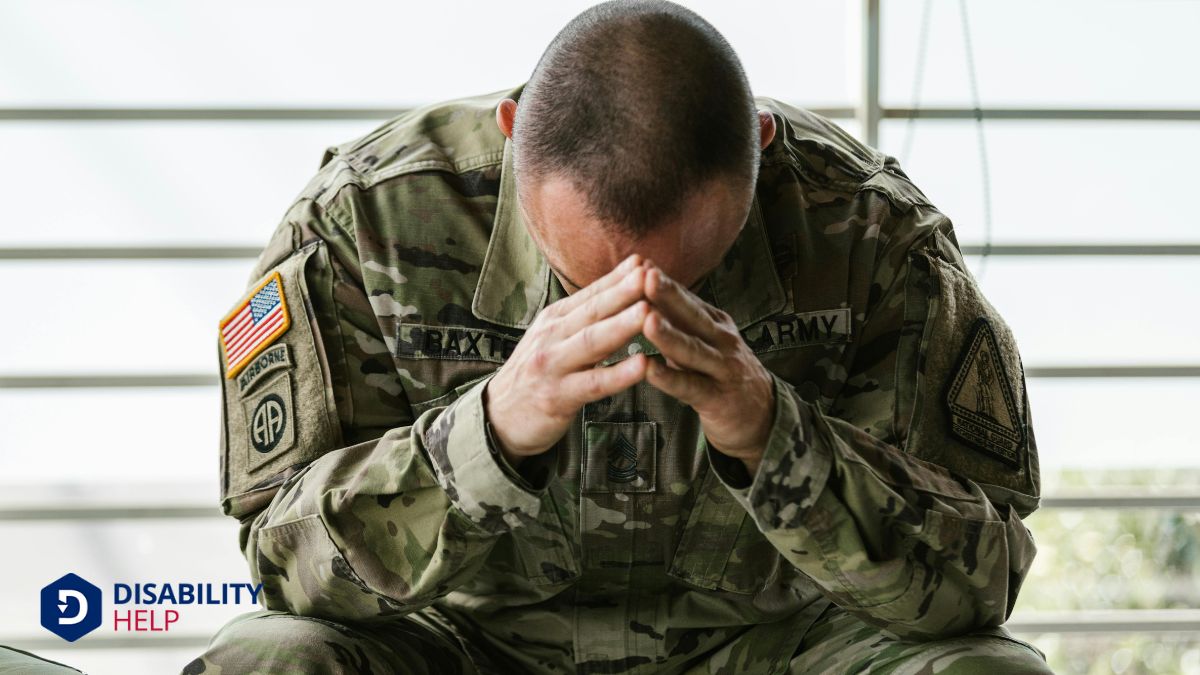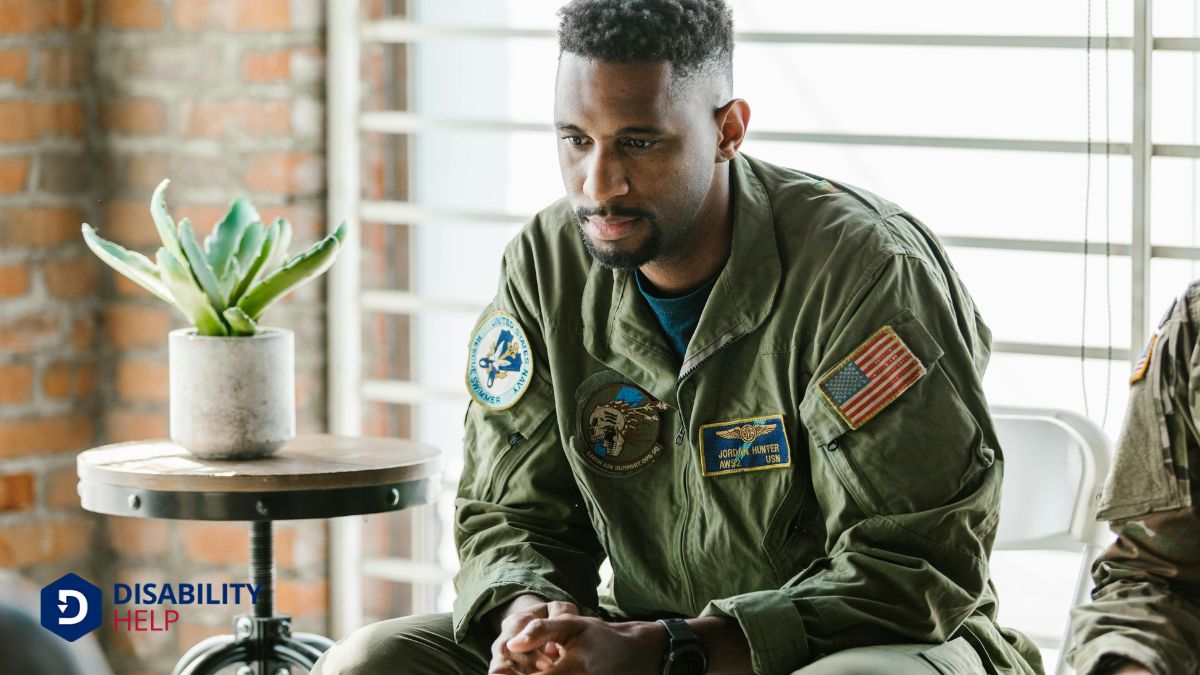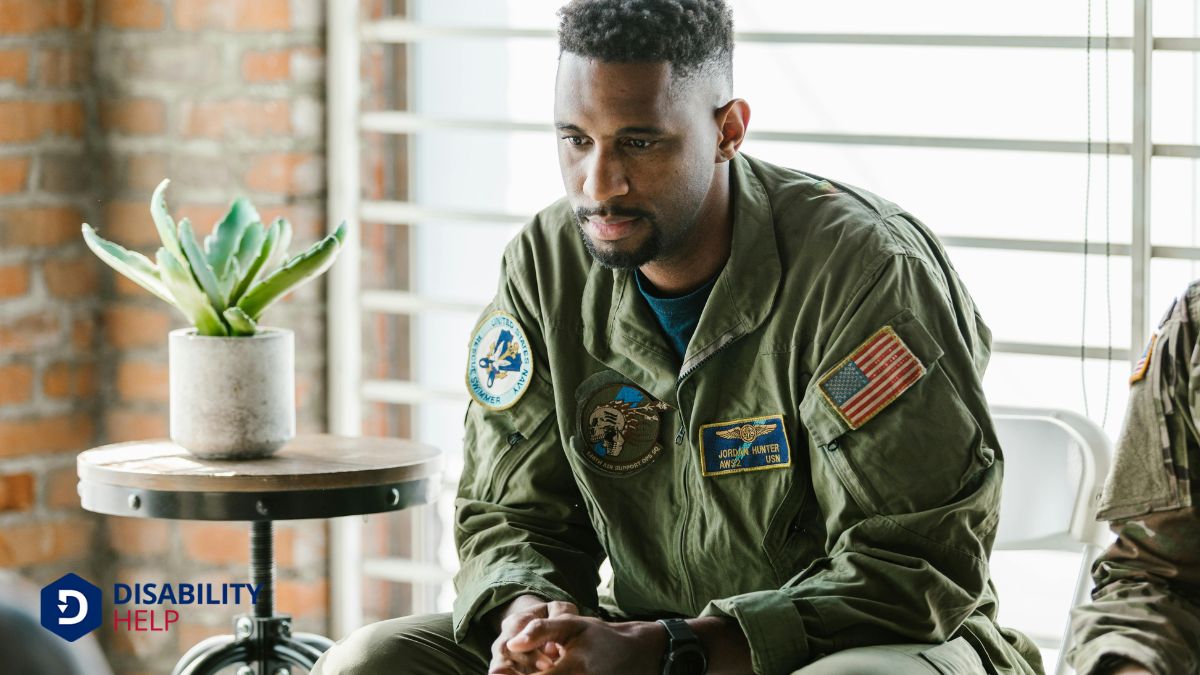We often wonder if veteran status requires deployment, but it doesn't. The Department of Veterans Affairs acknowledges anyone who has served honorably in the military, regardless of whether they've been deployed. Service members play crucial roles in training, support, and readiness, contributing to the military's strength. Each path taken in service has its unique challenges and accomplishments, enriching the military community. Whether stationed at home or abroad, every individual's dedication and sacrifice matter. By understanding the inclusive criteria for veteran status, we embrace the full spectrum of service. Curious about how different roles contribute? There's much more to uncover.
Key Takeaways
- Veteran status includes those who served honorably, regardless of deployment experiences.
- Deployment is not a requirement for being recognized as a veteran.
- Essential duties and readiness to deploy contribute to veteran eligibility.
- U.S. law considers various service roles, not just deployment, for veteran status.
- Recognition of military service honors all contributions, whether deployed or stationed at home.
Defining Veteran Status
When we start to explore veteran status, it's important to acknowledge that this classification isn't solely tied to deployment. Instead, it encompasses a broader range of military service experiences. We must consider that individuals who've served honorably in the armed forces, regardless of whether they deployed, qualify as veterans. The essence of being a veteran lies in the commitment to serve and the willingness to face potential challenges, not just in being sent overseas.
As we probe deeper, we see that the Department of Veterans Affairs (VA) provides a clear framework for determining veteran status. According to their guidelines, anyone who's served in active military, naval, or air service and was discharged under conditions other than dishonorable meets the criteria. This means that training, readiness, and support roles that occur stateside also contribute to a person's veteran status.
The Role of Deployment

How does deployment factor into the identity of a veteran? Deployment often serves as a pivotal moment in a service member's career. It's a time when we face real-world challenges and apply our training in situations that can be intense and unpredictable. Being deployed can shape our experiences, perspectives, and even our camaraderie. We often hear stories of deployments that create bonds among us, bonds forged through shared experiences in unfamiliar and demanding environments.
However, deployment isn't the only aspect of military service that defines us as veterans. It's important to remember that not everyone has the opportunity to deploy. Various factors, such as the needs of the military or individual circumstances, can influence whether we deploy. This doesn't diminish the value of our service. Our commitment and readiness to deploy, if called upon, still hold significant importance.
It's vital to recognize that our identity as veterans isn't solely tied to deployment. It encompasses our training, dedication, and the sacrifices we make, regardless of whether we serve overseas or stateside. As we explore the role of deployment, we should appreciate the diverse experiences that shape our collective identity as veterans.
Contributions Beyond Deployment
While deployment is a significant part of military service, our contributions as veterans extend far beyond it. We may not all have experienced deployment, but our roles within the military structure are indispensable. Every day, we fulfill essential duties that ensure the overall mission's success. Whether we're maintaining equipment, training fellow service members, or providing critical support, each task contributes to the military's readiness and effectiveness.
Our work often involves rigorous training and preparation, making sure that those who do deploy are ready to face any challenge. We hone skills that are crucial in both conflict and peace, ranging from technical expertise to leadership development. These skills help maintain the operational capabilities of our units and support the strategic goals of our armed forces.
Additionally, we often engage in community and humanitarian efforts, representing the military's values and extending a helping hand where needed. Our contributions reflect a commitment to service and responsibility, both at home and abroad. By supporting our fellow service members and upholding the values of dedication, honor, and integrity, we continuously contribute to the strength and resilienceThe ability of individuals with disabilities to cope with and adapt to challenges and adversity. of our military, regardless of deployment status.
Legal Definitions and Criteria
When we consider the legal definitions of a veteran, it's important to look at the basic military service requirements and how discharge status plays a role. Many of us might wonder if deployment impacts this status greatly. Let's explore how these factors shape the veteran designation and what it means for those who haven't deployed.
Military Service Requirements
Military service requirements are defined by legal criteria that determine who qualifies as a veteran. We often think of veterans as those who've seen combat, but that's not the only path to veteran status. According to U.S. law, a veteran is someone who's served in the active military, naval, or air service and was discharged or released under conditions other than dishonorable. It's important for us to remember that deployment isn't a requirement.
Active duty service encompasses a broad range of roles, from combat positions to essential support and administrative duties. Reservists and National Guard members may also be considered veterans if they've been called to active duty by federal order. They must meet the same criteria as regular active duty service members to qualify as veterans.
The duration of service can also play a role. Generally, those who've served for at least 24 continuous months are eligible. However, there are exceptions for those who were discharged earlier due to service-related injuries or other specific conditions. Understanding these requirements helps us appreciate the diverse experiences and contributions of all who serve, regardless of deployment status.
Discharge Status Considerations

Understanding discharge status is vital when discussing veteran eligibility. It defines the nature of one's separation from military service and can greatly impact veteran benefits. The different types of discharge include honorable, general (under honorable conditions), other than honorable, bad conduct, and dishonorable. Each type carries its own legal definitions and criteria, influencing not only how we perceive someone's service but also their access to benefits and recognition as a veteran.
When we examine these discharges, we see that an honorable discharge is the most favorable. It indicates exemplary service and grants full access to veteran benefits.
A general discharge, while still under honorable conditions, may result from minor infractions but still allows for most benefits.
On the other hand, other than honorable, bad conduct and dishonorable discharges can severely restrict or eliminate benefits. These are often the result of more serious offenses or misconduct.
It's important for us to understand these distinctions. They don't just shape the veteran's relationship with the military but also affect how society, including employers and service providers, interacts with them. Ultimately, discharge status plays a crucial role in defining veteran status and eligibility.
Deployment Impact on Status
Deployment status often sparks questions about one's recognition as a veteran. We might wonder if not being deployed while serving affects our veteran status. Legally, deployment isn't a requirement to be considered a veteran. The U.S. Department of Veterans Affairs (VA)A U.S. government agency that provides services and benefits to military veterans, including those w... defines a veteran as someone who served in the active military, naval, or air service and was discharged under conditions other than dishonorable. This definition doesn't mention deployment as a criterion, which can clear up some confusion for us.
While serving in a combat zone might be significant, it's not the sole measure of one's service. Many roles within the military are critical to its overall mission, even if they don't involve deployment. Training, support functions, and stateside operations guarantee our military remains operational and ready.
Clarifying legal definitions helps us understand that our value as veterans isn't solely tied to deployment. We should remember that each service member contributes to the larger mission, whether stationed abroad or at home. Recognizing this broader perspective allows us to appreciate every veteran's service, regardless of deployment status. In this way, we can honor all who've served and continue to serve.
Perspectives From Service Members
As service members, it's clear that deployment can greatly shape our sense of identity and can often lead others to perceive our military service differently. However, our varied experiences highlight that defining veteran status isn't solely about deployment; it's about our commitment and sacrifices, regardless of where we served.
Let's explore how these diverse perspectives influence our understanding of what it means to be a veteran.
Deployment's Impact on Identity

The concept of deployment often serves as a pivotal marker in the identity of service members, shaping not only how we see ourselves but also how others perceive our military experience. When we deploy, we're thrust into environments and situations that test our skills and resilience. These experiences can become defining moments, setting apart those who've faced combat zones or humanitarian missions from those who've served on home soil.
For many of us, deployment changes how we relate to our service. It can create a bond with fellow deployed members and a sense of shared accomplishment. However, it can also lead to a feeling of division within our ranks. Those of us who haven't deployed might question our contributions or feel overshadowed by the stories of those who have.
It's pivotal to remember that every role supports the mission's success. Whether we've deployed or not, our commitment to serve remains constant. We shouldn't let deployment—or the lack thereof—define our value as veterans. Instead, we should recognize that our diverse experiences contribute to a stronger, more unified military community, honoring each pathway that fortifies our collective identity.
Varied Service Experiences
While deployment often dominates discussions about military identity, it's important to acknowledge the rich tapestry of service experiences that shape our lives. Our service isn't defined solely by deployments; it's a collection of diverse roles and responsibilities, each contributing uniquely to our military journey.
From the rigorous training we undergo to the essential support roles on the home front, every task is crucial to the success of the mission. We might spend countless hours perfecting skills that don't directly involve combat but are equally significant, like logistics, intelligence, or medical support.
Each role demands commitment and expertise, forming the backbone of military operations. For some of us, serving means ensuring our fellow service members are equipped and ready, enabling them to perform their duties effectively. This diversityThe inclusion of individuals from a wide range of backgrounds, including people with disabilities. in our experiences is what truly enriches the military community.
We all share a common bond, supporting each other regardless of our specific duties. Whether we've been stationed stateside or abroad, our shared dedication to service is what binds us. Recognizing these varied contributions helps us appreciate the full scope of what it means to serve beyond the traditional narrative of deployment.
Defining Veteran Status
Veteran status isn't just a label; it's a recognition of our commitment and service to the nation. We often find ourselves questioning what truly defines a veteran. Is it the act of deploying to a combat zone, or is it the oath we took, the training we endured, and the readiness we maintained? For many of us, the essence of being a veteran lies in the shared experiences and sacrifices, regardless of deployment status.
We understand that not everyone who serves gets the chance to deploy. Some of us are stationed stateside, supporting operations and ensuring that missions run smoothly. Others might be engaged in pivotal roles that, while not in direct combat, are essential to the overall success of military objectives. These roles require dedication, discipline, and a strong sense of duty, qualities that are at the heart of what it means to be a veteran.
As service members, we recognize that veteran status should honor all who've worn the uniform with pride. It's about acknowledging the diverse paths we've taken in service. Our collective experiences, whether deployed or not, contribute to the strength and resilience of our military community.
Recognizing All Forms of Service

In our society, recognizing all forms of service is essential to honoring those who've dedicated themselves to the military, regardless of deployment history. Every role within the military plays a part in securing our nation's safety and success. Whether stationed at home or abroad, each member contributes to the larger mission. It's easy to overlook those who haven't deployed, but their service is necessary and deserves our respect.
We often focus on combat roles as the defining aspect of military service, but let's remember that support roles are equally important. Logistics, training, and administrative positions keep the entire system running smoothly. Without these roles, those on the front lines couldn't perform their duties effectively.
By recognizing all forms of service, we acknowledge the complexity and interdependence of military operations.
Understanding this broad spectrum of service helps us appreciate the varied experiences of our veterans. It's not just about where they served but how they contributed to the mission. As a community, we should foster an environment where every service member feels valued. Let's guarantee that all veterans, regardless of deployment, receive the recognition they deserve for their commitment and sacrifice.
Conclusion
When considering veteran status, we must remember that service takes many forms. While deployment often highlights sacrifice, not deploying doesn't diminish one's contributions or commitment. Legal definitions may vary, but every role supports the mission. Let's honor the diverse experiences within the military community and recognize that each member plays a crucial part. By embracing all forms of service, we foster a broader appreciation of what it means to be a veteran.






